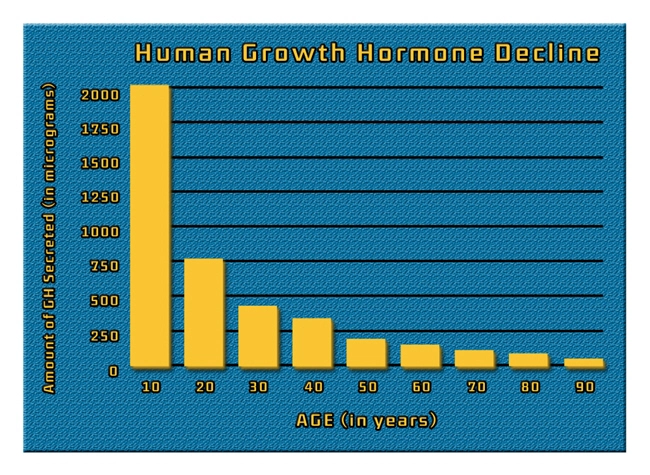
Introduction
The relationship between socioeconomic status (SES) and access to healthcare services is a critical issue that impacts the health outcomes of populations worldwide. In the United States, this relationship is particularly pronounced, with significant variations observed across different states. This article delves into the influence of socioeconomic status on the access to healthcare services specifically among American men, providing a cross-sectional analysis that highlights the disparities and proposes potential pathways for improvement.
Socioeconomic Status and Healthcare Access
Socioeconomic status, encompassing factors such as income, education, and occupation, plays a pivotal role in determining the quality and extent of healthcare services an individual can access. For American men, those with lower SES often face barriers to healthcare, including lack of insurance, inadequate healthcare facilities in their vicinity, and limited health literacy. This disparity can lead to delayed diagnoses, untreated chronic conditions, and overall poorer health outcomes.
State-by-State Variations
The United States exhibits significant variation in healthcare access and SES across its states. For instance, states like Massachusetts and Hawaii have implemented policies that enhance healthcare accessibility, such as expanded Medicaid coverage, which benefits men across various SES levels. In contrast, states like Mississippi and Texas, where a larger proportion of the population may fall into lower SES categories, often have less comprehensive healthcare systems and higher uninsured rates among men.
Impact on American Men
American men, particularly those in lower SES brackets, are disproportionately affected by these state-specific healthcare disparities. Research indicates that men in these states are more likely to forego necessary medical consultations due to cost concerns, leading to higher incidences of preventable diseases such as hypertension, diabetes, and certain cancers. Furthermore, mental health issues, which are often stigmatized among American men, are less likely to be addressed in lower SES communities due to both financial constraints and limited access to specialized care.
Policy Implications and Interventions
Addressing the socioeconomic disparities in healthcare access for American men requires targeted policy interventions. One approach is the expansion of Medicaid in all states, which could significantly reduce the uninsured rate among lower SES men. Additionally, increasing the number of community health centers in underserved areas could provide more accessible primary care services. Educational campaigns aimed at improving health literacy and reducing stigma around mental health could also empower men to seek necessary care.
Conclusion
The influence of socioeconomic status on access to healthcare services is a complex issue that significantly impacts American men across different states. By understanding these disparities and implementing effective policy measures, it is possible to enhance healthcare access and improve health outcomes for all American men, regardless of their socioeconomic standing. Continued research and advocacy are essential to ensure that these efforts are sustained and effective over time.
This analysis underscores the need for a multifaceted approach to address healthcare disparities, emphasizing the importance of state-specific strategies that consider the unique socioeconomic challenges faced by American men.
Contact Us Today For A Free Consultation
Dear Patient,
Once you have completing the above contact form, for security purposes and confirmation, please confirm your information by calling us.
Please call now: 1-800-380-5339.
Welcoming You To Our Clinic, Professor Tom Henderson.

- Understanding and Treating Erectile Dysfunction: Causes, Diagnosis, and Options for American Men [Last Updated On: February 25th, 2025] [Originally Added On: February 25th, 2025]
- Top Fitness Trends Transforming American Men's Health and Well-being [Last Updated On: March 17th, 2025] [Originally Added On: March 17th, 2025]
- Understanding Male Infertility: Causes, Diagnosis, and Treatment Options for American Men [Last Updated On: March 18th, 2025] [Originally Added On: March 18th, 2025]
- Physical Activity's Role in Cancer Prevention for American Men: Strategies and Benefits [Last Updated On: March 18th, 2025] [Originally Added On: March 18th, 2025]
- Hydration's Vital Role in Enhancing Men's Health and Well-being in America [Last Updated On: March 18th, 2025] [Originally Added On: March 18th, 2025]
- Osteoporosis in Men: Risks, Prevention, and Strategies for Bone Health [Last Updated On: March 18th, 2025] [Originally Added On: March 18th, 2025]
- Essential Supplements for Men's Health: A Comprehensive Guide for American Males [Last Updated On: March 19th, 2025] [Originally Added On: March 19th, 2025]
- Stress and Heart Health: Impacts and Management Strategies for American Men [Last Updated On: March 19th, 2025] [Originally Added On: March 19th, 2025]
- Gout in American Men: Symptoms, Causes, and Management Strategies [Last Updated On: March 21st, 2025] [Originally Added On: March 21st, 2025]
- Breaking the Stigma: Enhancing Mental Health Support for American Men [Last Updated On: March 21st, 2025] [Originally Added On: March 21st, 2025]
- Sleep Apnea in American Men: Symptoms, Risks, and Management Strategies [Last Updated On: March 21st, 2025] [Originally Added On: March 21st, 2025]
- Work-Life Balance: Impact on American Men's Health and Strategies for Improvement [Last Updated On: March 21st, 2025] [Originally Added On: March 21st, 2025]
- Allergies in American Men: Symptoms, Management, and Impact on Quality of Life [Last Updated On: March 22nd, 2025] [Originally Added On: March 22nd, 2025]
- Meditation's Impact on Men's Mental Health: Benefits and Integration Strategies [Last Updated On: March 22nd, 2025] [Originally Added On: March 22nd, 2025]
- Gut Health Essentials for American Men: Microbiome, Diet, and Wellness [Last Updated On: March 22nd, 2025] [Originally Added On: March 22nd, 2025]
- Strength Training: Enhancing Men's Health in the U.S. with Resistance Exercises [Last Updated On: March 22nd, 2025] [Originally Added On: March 22nd, 2025]
- Alcohol's Impact on Liver Health: Risks, Stages, and Prevention for American Males [Last Updated On: March 22nd, 2025] [Originally Added On: March 22nd, 2025]
- High Cholesterol in American Men: Risks, Management, and Prevention Strategies [Last Updated On: March 23rd, 2025] [Originally Added On: March 23rd, 2025]
- Enhancing Men's Mental Health in the Workplace: Challenges and Strategies [Last Updated On: March 23rd, 2025] [Originally Added On: March 23rd, 2025]
- Obesity and Cancer Risks in American Men: Understanding and Mitigation Strategies [Last Updated On: March 23rd, 2025] [Originally Added On: March 23rd, 2025]
- Dietary Fiber: Essential for Men's Health and Disease Prevention [Last Updated On: March 23rd, 2025] [Originally Added On: March 23rd, 2025]
- Kidney Stones in American Men: Prevention, Management, and Health Strategies [Last Updated On: March 24th, 2025] [Originally Added On: March 24th, 2025]
- Effective Smoking Cessation Strategies for American Men's Health and Well-being [Last Updated On: March 24th, 2025] [Originally Added On: March 24th, 2025]
- Mental Health Days: Essential for American Men's Well-being and Productivity [Last Updated On: March 24th, 2025] [Originally Added On: March 24th, 2025]
- Plant-Based Diets: Enhancing Men's Health from Heart to Mind [Last Updated On: March 25th, 2025] [Originally Added On: March 25th, 2025]
- Dental Health's Crucial Role in Men's Overall Well-being and Disease Prevention [Last Updated On: March 25th, 2025] [Originally Added On: March 25th, 2025]
- Stroke Risks and Prevention Strategies for American Men [Last Updated On: March 25th, 2025] [Originally Added On: March 25th, 2025]
- Tai Chi: Enhancing Men's Health in the U.S. - Physical, Mental, Cognitive Benefits [Last Updated On: March 25th, 2025] [Originally Added On: March 25th, 2025]
- Diet's Impact on Prostate Health: Foods to Embrace and Avoid [Last Updated On: March 25th, 2025] [Originally Added On: March 25th, 2025]
- Annual Physicals: Vital for Men's Health, Early Detection, and Personalized Care [Last Updated On: March 25th, 2025] [Originally Added On: March 25th, 2025]
- Managing Anxiety in American Men: Tools and Techniques for Mental Health [Last Updated On: March 25th, 2025] [Originally Added On: March 25th, 2025]
- Depression in American Men: Holistic Treatment Approaches and Breaking Stigma [Last Updated On: March 25th, 2025] [Originally Added On: March 25th, 2025]
- Asthma in American Men: Prevalence, Management, and Lifestyle Impact [Last Updated On: March 26th, 2025] [Originally Added On: March 26th, 2025]
- Seasonal Affective Disorder in American Men: Symptoms, Impact, and Management Strategies [Last Updated On: March 26th, 2025] [Originally Added On: March 26th, 2025]
- Gut-Brain Axis: Stress Impact on Digestive Health in American Males [Last Updated On: March 26th, 2025] [Originally Added On: March 26th, 2025]
- Exercise Benefits for American Men Managing Diabetes: Enhancing Health and Well-being [Last Updated On: March 26th, 2025] [Originally Added On: March 26th, 2025]
- Proactive Health Strategies for American Men: Screenings, Lifestyle, and Mental Well-being [Last Updated On: March 26th, 2025] [Originally Added On: March 26th, 2025]
- Caffeine's Impact on American Men: Health, Performance, and Consumption Guidelines [Last Updated On: March 26th, 2025] [Originally Added On: March 26th, 2025]
- Diet and Heart Disease Prevention in American Males: Key Components and Recommendations [Last Updated On: March 26th, 2025] [Originally Added On: March 26th, 2025]
- Pilates: Enhancing Men's Health and Fitness in the U.S. [Last Updated On: March 26th, 2025] [Originally Added On: March 26th, 2025]
- Cycling Benefits for American Men: Health, Fitness, and Well-being [Last Updated On: March 27th, 2025] [Originally Added On: March 27th, 2025]
- Insomnia's Impact on Men's Health: Causes, Effects, and Management Strategies [Last Updated On: March 27th, 2025] [Originally Added On: March 27th, 2025]
- Swimming: Enhancing Men's Health in America Through Fitness and Wellness [Last Updated On: March 27th, 2025] [Originally Added On: March 27th, 2025]
- Hemorrhoids in American Men: Causes, Symptoms, and Management Strategies [Last Updated On: March 27th, 2025] [Originally Added On: March 27th, 2025]
- Sleep's Crucial Role in Weight Management for American Men [Last Updated On: March 27th, 2025] [Originally Added On: March 27th, 2025]
- Eye Exams: Essential for Men's Vision and Overall Health Monitoring [Last Updated On: March 28th, 2025] [Originally Added On: March 28th, 2025]
- Arthritis in Men: Prevention, Management, and Enhancing Quality of Life [Last Updated On: March 28th, 2025] [Originally Added On: March 28th, 2025]
- Promoting Men's Mental Health: The Urgent Need for Regular Screening and Support [Last Updated On: March 28th, 2025] [Originally Added On: March 28th, 2025]
- Varicose Veins in American Men: Causes, Symptoms, and Treatment Options [Last Updated On: March 28th, 2025] [Originally Added On: March 28th, 2025]
- Social Connections: Vital for American Men's Mental Health and Well-being [Last Updated On: March 29th, 2025] [Originally Added On: March 29th, 2025]
- Hiking's Comprehensive Health Benefits for American Men: Physical, Mental, and Social [Last Updated On: March 31st, 2025] [Originally Added On: March 31st, 2025]
- Rowing: Enhancing Health and Fitness for American Men [Last Updated On: April 1st, 2025] [Originally Added On: April 1st, 2025]
- Pollution's Multifaceted Impact on American Men's Health: Risks and Mitigation Strategies [Last Updated On: April 1st, 2025] [Originally Added On: April 1st, 2025]
- Antioxidants: Key to Health for American Men - Heart, Cancer, Aging, Eye Benefits [Last Updated On: April 1st, 2025] [Originally Added On: April 1st, 2025]
- Breaking Stigma: The Vital Role of Mental Health Education for American Men [Last Updated On: April 2nd, 2025] [Originally Added On: April 2nd, 2025]
- Understanding and Managing Migraines in American Men: Symptoms, Triggers, and Strategies [Last Updated On: April 4th, 2025] [Originally Added On: April 4th, 2025]
- Skin Cancer in American Men: Risks, Prevention, and Early Detection Strategies [Last Updated On: April 5th, 2025] [Originally Added On: April 5th, 2025]
- Alcohol and Mental Health in American Males: A Bidirectional Impact and Solutions [Last Updated On: April 6th, 2025] [Originally Added On: April 6th, 2025]
- Community Impact on American Men's Health and Wellbeing: Support, Prevention, and Engagement [Last Updated On: April 6th, 2025] [Originally Added On: April 6th, 2025]
- Preventing and Managing Back Pain in American Men: Causes, Strategies, and Lifestyle Tips [Last Updated On: April 8th, 2025] [Originally Added On: April 8th, 2025]
- Martial Arts: Enhancing Men's Health and Wellness in the U.S. [Last Updated On: April 9th, 2025] [Originally Added On: April 9th, 2025]
- Technology Reshaping Men's Health: Telemedicine, Wearables, and Digital Apps in the U.S. [Last Updated On: April 11th, 2025] [Originally Added On: April 11th, 2025]
- Managing Panic Attacks: Strategies and Support for American Men [Last Updated On: April 11th, 2025] [Originally Added On: April 11th, 2025]
- Running: Enhancing Men's Health from Heart to Mind in America [Last Updated On: April 11th, 2025] [Originally Added On: April 11th, 2025]
- Men's Hearing Health: Risks, Prevention, and Technological Solutions [Last Updated On: April 12th, 2025] [Originally Added On: April 12th, 2025]
- Essential Vitamins for Men's Health: Enhancing Well-being and Preventing Disease [Last Updated On: April 12th, 2025] [Originally Added On: April 12th, 2025]
- Obesity and Diabetes in American Men: Risks, Impacts, and Management Strategies [Last Updated On: April 12th, 2025] [Originally Added On: April 12th, 2025]
- Soccer's Impact on Men's Health: Cardiovascular, Muscle, and Mental Benefits [Last Updated On: April 15th, 2025] [Originally Added On: April 15th, 2025]
- Managing IBS in American Men: Symptoms, Triggers, and Effective Strategies [Last Updated On: April 15th, 2025] [Originally Added On: April 15th, 2025]
- Lung Cancer in American Men: Risks, Symptoms, Prevention, and Treatment Strategies [Last Updated On: April 15th, 2025] [Originally Added On: April 15th, 2025]
- Diet and Mental Health: Key Insights for American Men's Well-being [Last Updated On: April 16th, 2025] [Originally Added On: April 16th, 2025]
- Obesity and Heart Disease in American Men: Risks, Mechanisms, and Prevention Strategies [Last Updated On: April 17th, 2025] [Originally Added On: April 17th, 2025]
- Basketball's Health Benefits for American Men: Physical, Mental, and Social Wellness [Last Updated On: April 17th, 2025] [Originally Added On: April 17th, 2025]
- Transforming Men's Health: Tailored Mental Health Awareness Campaigns for American Men [Last Updated On: April 18th, 2025] [Originally Added On: April 18th, 2025]
- Mental Health First Aid: A Vital Tool for American Men's Well-being [Last Updated On: April 18th, 2025] [Originally Added On: April 18th, 2025]
- Family Support: Enhancing Health and Well-being of American Men [Last Updated On: April 18th, 2025] [Originally Added On: April 18th, 2025]
- CrossFit: Enhancing Men's Health Through Comprehensive Fitness Regimen [Last Updated On: April 19th, 2025] [Originally Added On: April 19th, 2025]
- Joint Pain in Men: Causes, Prevention, and Management Strategies for American Males [Last Updated On: April 20th, 2025] [Originally Added On: April 20th, 2025]
- Socioeconomic Factors Shaping Health Outcomes for American Men: A Comprehensive Analysis [Last Updated On: April 21st, 2025] [Originally Added On: April 21st, 2025]
- Prostate Cancer Screening Enhances Survival: Importance of Early Detection in American Men [Last Updated On: April 22nd, 2025] [Originally Added On: April 22nd, 2025]








